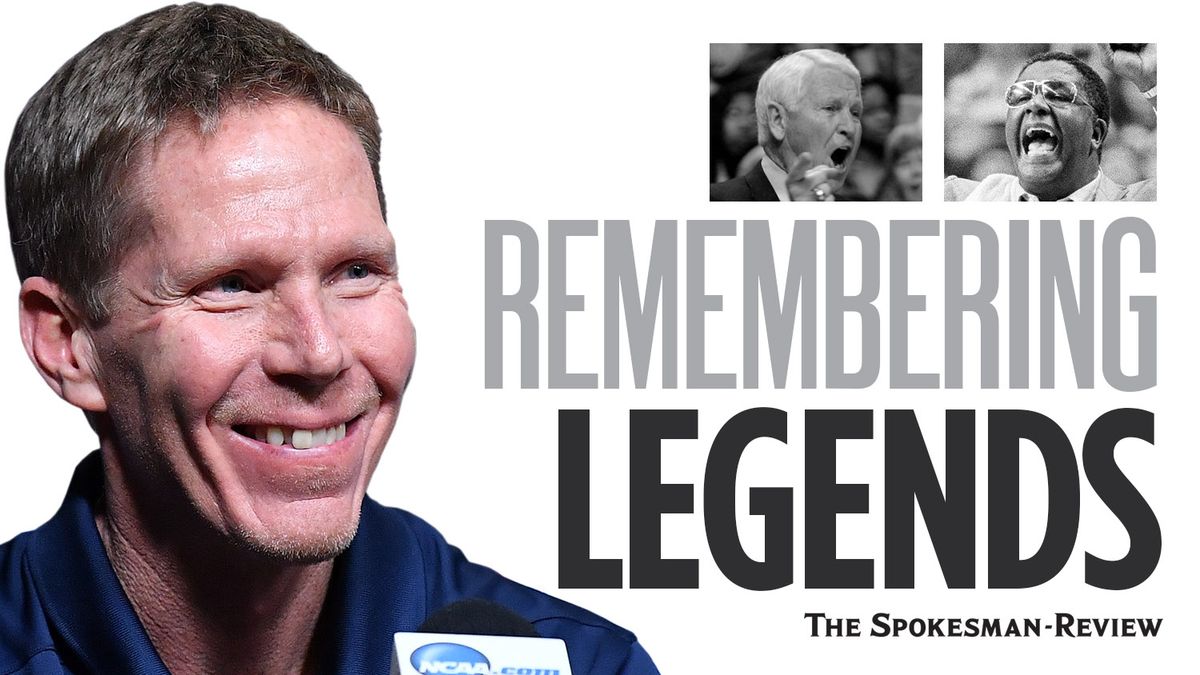Gonzaga’s Mark Few reflects on loss of coaching icons Lute Olson, John Thompson

It was early in Mark Few’s coaching career. He can’t remember the exact year, but he remembers nearly every other detail of his first encounter with John Thompson.
Thompson was holding court in the lobby of the coaches’ hotel at the Final Four. Thompson spotted the young Gonzaga coach and in his distinctive voice called out Few’s name to come join him.
“And he talked to me for 15 minutes,” Few recalled on the March Madness 365 podcast. “I couldn’t believe this guy knew who I was. Literally every Final Four since then I would sit with him in the lobby. He always had that chair with everybody hanging out with him.”
College basketball lost two coaching icons recently with the deaths of Thompson, who turned Georgetown into a national power, and Lute Olson, who did the same at Arizona.
Both Hall of Fame coaches made a huge impression on Few, who was a fan of the Hoyas’ tenacity and toughness and the Wildcats’ fluid style of play.
“On the Nike (coaches) trips, (Olson) always just accepted me and put me in his golf group,” Few said. “I didn’t really know anybody and I was really unsure of myself starting out in coaching and he just treated me as an equal. The dude was the epitome of class, everything he did and how he handled himself.”
The 6-foot-10 Thompson and the 6-4 Olson were towering figures on and off the court. Thompson became the first Black head coach to win the national championship when Georgetown defeated Houston 84-75 in 1984. He guided the Hoyas to three Final Fours, including title-game losses to North Carolina in 1982 and Villanova in 1985.
Thompson was outspoken on issues facing college basketball and fiercely supportive of his players. He walked off the court prior to a 1989 game against Boston College in protest of Proposition 42, a measure he believed limited opportunities for minority student-athletes.
Olson, who left a successful program at Iowa after the 1983 season, inherited a four-win Arizona team and led the Wildcats to the Final Four five years later.
In 1997, the Wildcats defeated three No. 1 seeds, including Kentucky 84-79 in overtime, to capture the NCAA title, the most recent by a Pac-12 team.
Olson put Arizona’s program on the college basketball map with his recruiting prowess and ability to develop players.
Few never faced Thompson as a head coach. Few’s first season as Gonzaga’s head coach was 1999-2000. Thompson resigned at Georgetown in January 1999.
Few’s teams lost both meetings against Olson and Arizona. The first was a 101-87 road decision in 2000, a game Gonzaga led 76-71 with 7:45 remaining. The second was a 96-95 double-overtime thriller in the 2003 NCAA Tournament as the ninth-seeded Zags came up just short against the top-seeded Wildcats.
Few and Olson became “really good friends and we ended up competing against each other and even had one of the great NCAA Tournament games in double overtime in Salt Lake City.”
Few grew up watching Georgetown play and “loved their toughness and everything coach Thompson stood for.
“Living out West, I really enjoyed and became a huge fan of Lute’s teams when I was first getting into coaching,” Few said. “Just the style they played. They played fast, they played loose, they played easy but also as a team.”
Few looked forward to annual visits with Thompson at the Final Four, being a guest on Thompson’s radio show and when Thompson handled TV/radio analyst duties on Gonzaga games.